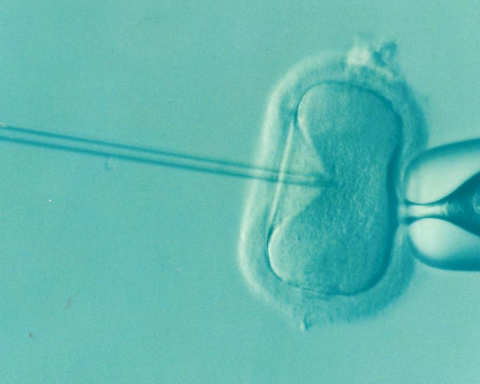Pollen might cause misery to millions with hayfever sniffles every spring and summer, but new research has revealed it could hold the key to saving millions of lives.
Scientists have found that the natural properties found in pollen shells could help develop new techniques to tackle antibiotic resistance by effectively giving new light-sensitive antibiotics, found in the deep-sea, a protective sunscreen.
As increasing reliance on and overuse of antibiotics has led to the rise of superbugs, new bacterial strains that have grown resistant to several existing antibiotics, leaving them almost impossible to treat.
Published in the Royal Society of Chemistry journal Chemical Science, research by a team from the University of St Andrews – in collaboration with investigators at the University of Hull, Sporomex® Ltd and Queen’s University in Canada – has revealed a new technique using properties found in the outer shell component of pollen to give antibiotics found in the deep sea the ability to live happily outside the ocean.
Over the past few years, superbugs resistant to antibiotics like MRSA and VRSE have already claimed tens of thousands of lives – making the search for a potential solution an urgent task–researcher Professor Rebecca Goss
“In recent years, a new class of antibiotics developed called marinomycins were found to be effective against these superbugs; however, they rapidly decompose in light, so they were effectively useless as potential antibiotics.“
Professor Andrew Evans, Queen’s University Canada, hit upon the idea of using pollen to protect the marinomycins as a kind of sunscreen after a chance meeting with Sporomex’s Grahame Mackenzie. Professor Goss already had the marinomycins strain isolated, and the three collaborated to design this unique
He said: “Using this technique, we’ve gone from something that’s really unstable to something that’s almost indefinitely stable. The remarkable discovery in this paper is we can take these pollen spores to photoprotect these unique antibiotics and suddenly what was then useless is now useful again.
”The half life of marinomycins in UV light is 90 seconds. When we shine the UV light on it when in the dried pollen shells, after seven hours there’s no sign of any decomposition. It’s a very important discovery.”
The technique strips away the components of pollen associated with allergies before using them as a suit of armour for the powerful antibiotics.
Grahame Mackenzie added: “We are extremely excited by it. This was a serendipitous meeting of three people with different areas of expertise which led to a serendipitous finding which will be of good use to all of us.”
Pollen is widely used around the world for oral consumption, and because different plant species produce different sized pollen spores, they could be used to protect and deliver a range of different drugs.
The full paper, A Natural Solution to Photoprotection and Isolation of the Potent Polyene Antibiotic, Marinomycin A, was published in the Royal Society of Chemistry journal Chemical Science.
Professor Hugh Pennington, emeritus professor of bacteriology at the University of Aberdeen, said: “All the antibiotics that were easy to find and use were discovered many years ago. Resistance to them means that new ones are needed urgently.
“This ingenious research shows a cunning way forward – greatly enhancing the therapeutic potential of naturally occurring substances by giving them protection from degradation that unchecked makes them useless. Congratulations to the team for injection some optimism into this difficult and challenging area of work.”
Dr May Copsey, Executive Editor of Chemical Science at the Royal Society of Chemistry, said: “Since the development of antibiotics in the early twentieth century, modern medicine has continued to transform the lives of billions of people. Infectious diseases that routinely killed or disabled people only 100 years ago are now easily treatable – something that we now take for granted.
“However, a recent surge in superbugs is compromising the ability to effectively treat new strains of bacteria due to increasing resistance, putting millions at risk.
“Pollen has in the past been subject to much vilification in the media, plaguing the lives of millions with hayfever symptoms each year. Now, there’s a chance to turn the story into something much more positive, thanks to the research of Professor Goss and her team.”
Professor Goss adds: “It is very exciting. Many molecules with potentially useful medicinal properties are dropped due to photoinstability, but now there is huge potential to use pollen encapsulation to stabilise and rescue these potential drugs.”
Also working on the study were Alberto Diego Taboada at Sporomex, who prepared the spores and PhD students of the University of St Andrews, Christopher Bailey and Joseph Zarins-Tutt, two PhD students, who carried out the careful photoprotection experiments.
About the Royal Society of Chemistry
They are an international organisation connecting chemical scientists with each other, with other scientists, and with society as a whole. Founded in 1841 and based in London, UK, they have an international membership of over 50,000. They use the surplus from our global publishing and knowledge business to give thousands of chemical scientists the support and resources required to make vital advances in chemical knowledge. They develop, recognise and celebrate professional capabilities, and they bring people together to spark new ideas and new partnerships. They support teachers to inspire future generations of scientists, and they speak up to influence the people making decisions that affect all. They are a catalyst for the chemistry that enriches our world.







we know that pollen might cause of hayfever sniffles in every spring and summer. but It is new to us that pollen could be the key to tackling antibiotic resistance.Thanks for sharing this information in your article.